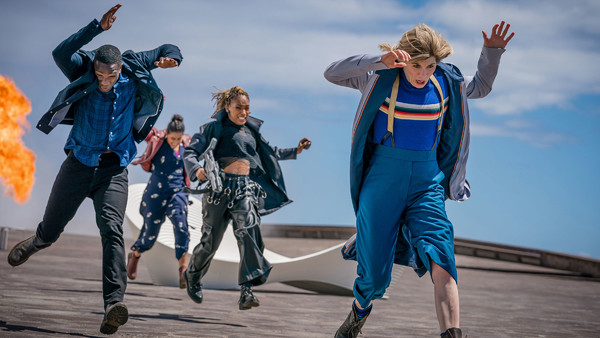How Doctor Who Just Completely Changed Its Time Travel Rules
Last night's Orphan 55 has changed Doctor Who forever!

After an explosive, well-received return for Jodie Whittaker’s Doctor on New Year’s Day – not to mention an impressive follow-up episode – last night’s latest Series 12 offering has left a bad taste in the mouths of many.
While questions can be asked over the tone-deaf, heavy-handed writing of the current series’ third episode, one larger topic that left audiences puzzled is how Doctor Who has seemingly completely changed its concept of time travel.
To date, Doctor Who has of course traversed time and space throughout its legendary history, yet the show’s most recent episode has spun all of this on its head by delivering what is essentially the notion of the Multiverse.
No longer is time a linear, single stream of events, for last night’s Orphan 55 episode showcased a potential future. A future in which the titular Orphan 55 planet is actually a skewed future version of our very own Earth that has been ravaged by environmental atrocities.
This would all lead to Whittaker’s Doctor waxing lyrical about how this is simply one possible future for the Earth, and that this can be avoided if change is implemented. Some saw this as a ham-fisted political message delivered with the subtlety of a sledgehammer to the knee caps, but whether you liked or loathed the political message in which this latest episode was laced in, the greater fact of the matter is that Orphan 55, it’s position as a possible future, and the fact that this future can be averted opens up the idea that every decision affects how the future plays out – in turn creating several strands in which the world can go and in which history can be altered.
By Doctor Who acknowledging this, that in itself offers up a constantly moving web of new potential timelines – which by definition is what is known as the Multiverse.
While Doctor Who acknowledging the Multiverse concept is one thing, by doing so the series has gone against pretty much everything audiences have ever seen from Doctor Who as it pertains to time travel.
Alternative timelines have previously been seen in Doctor Who, yet those timelines were out of reach to the Doctor and the Time Lord’s companions – with those characters only able to actively explore the one, linear timeline of the main, established canon.
Whether introducing the Multiverse concept was fully the intention of writers Chris Chibnall and Ed Hime remains to be seen, and this could well be a case of Messrs Chibnall and Hime overcomplicating Doctor Who simply for the sake of championing environmental change.